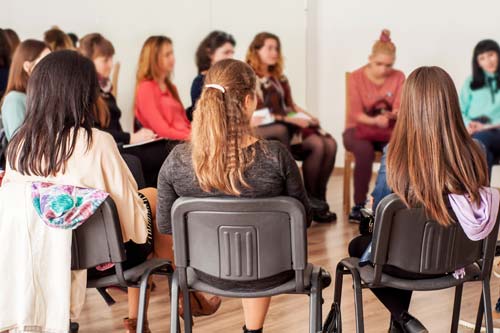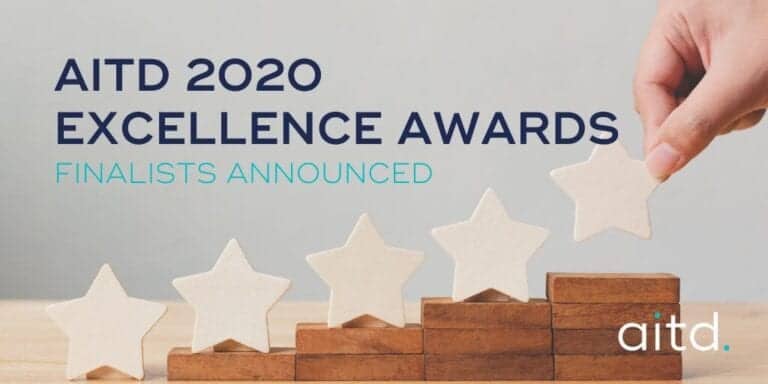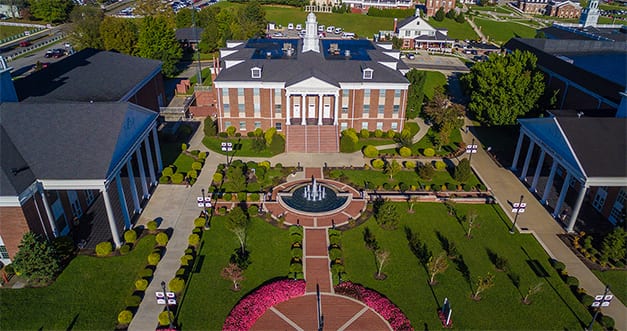While the benefits of mentoring are widely appreciated, achieving a quality and effective mentoring relationship can be challenging. Matching and finding the right fit, building rapport and the relationship, and consistently staying connected all take time and effort. But the rewards are worth it when a mentee can truly benefit from the experience, guidance, validation, different perspective, and safe challenge, a mentor can bring, and the mentor in return feels valued in their contribution.
Mentoring underpins the Northern Territory Institute of Sport’s (NTIS) unique, high-performance Officiating Program. The exciting initiative, which has been running for a number of years now, harnesses the power of personal relationships, coupling them with technical knowledge, accreditation, and opportunities which will ultimately develop officials participating in the program to contribute at a national and international level.
The NTIS program sees officials from a wide cross section of sports partnered with a mentor who is nominated by the official’s peak sporting body. The relationship is formalized in a 12 month agreement which sees the mentor work personally and closely with their official, speaking fortnightly, engaging in the NTIS program alongside their official, and identifying professional development opportunities for them. The program was created to extend and facilitate growth among the Northern Territory’s officials. Importantly, the program also dedicates time to a ‘giving back’ project which involves officials in supporting the development or recruitment of first year officials. The high-performance Officiating Program targets the growth and depth of officials and their contribution to community sport throughout the Northern Territory, Australia.
NTIS Coaching and Officiating Manager, Sean Cooke adds,
“Part of the role of the officiating mentor is advocacy, for example to recommend an official to the administration or management of the sport for attendance at a competition, tournament, or role to fulfill.”
The program uses Athlete Assessments’ Sports ManagerDISC Profile to help the pairings of officiating mentees and mentors get to know each other, and establish how to work best together. As an integral element of the program, Athlete Assessments’ Senior Coaching Consultant, Bo Hanson, delivers two facilitated sessions for the group, one early and one mid-way in the program, to ensure the group understands how to apply their profiles.
Bo says,
“Using DISC to help mentors understand their official mentor relationship, means valuable time can then be spent ensuring communication and relationship building is effective. The use of DISC also helps officials to see how different officiating styles, communication, decision making, and even different ways others prepare themselves, is all helpful for gaining perspective for their role.”
Like all Athlete Assessments DISC Profiles, the Sports ManagerDISC captures the way you approach situations, your pace and directness for tackling challenges, absorbing and relaying information, how you contribute to a team, and interact with the people around you. Everyone finds the sections about how best to communicate with them and details of your ideal environment valuable. It gives you concise information about how you approach situations, what you prefer – for example, some people work well in a solo capacity while others get their energy from the people around them. Knowing what you want and need to work well, how you contribute, and exactly what your strengths are is relevant to this program. This becomes even more useful once you metabolize the information about yourself, and appreciate how and when the people around you are different. It is especially useful when building relationships such as the mentor – mentee.
Dedicating time to learn about yourself and reflect on the way you do things is a rare opportunity for most people, juggling life, family, and commitments means that our time is valuable and usually scheduled to the max. Ironically, this process of taking time out to consider our approaches to people and situations makes our time more efficient in the long run because our efforts are more effective. Working with people from hugely diverse backgrounds we find that across the board, participants really enjoy learning about themselves and the people around them.
This learning often generates important moments for program participants and Sean, shared an example with us,
“They like learning about others, which often results in an aha moment for them, as they try to understand how others behave and understand that not everybody is like them.”
Developing that knowledge is so important because it precedes the pivotal decision to adapt your behavior or customize your approach to get better results with the person you’re working with. Sean continues,
“I think it stretches people’s comfort zones and make them realize that they need to adapt their behaviors to be successful in their role.”
Talking about the way DISC Profiling is giving program participants extra tools, Sean described a situation which saw one of the participating officials collaborating and communicating with her mentor in her natural style, but when she came back to the program as a mentor, she needed to use a different approach because her assigned mentee went about things in a completely different way. In that situation the mentor was able to adapt her behavior, stimulating her mentee with a series of questions as opposed to providing direction, which would have been acting in her natural style.
Sean shares that they see there is still some way to go, but that progress is being made and the NTIS recognize the benefit for those who are in the program for multiple years as the learning is layered.
Bo says,
“I admire the way the NTIS embraces continuous improvement. Learning about yourself and making behavioral changes that benefit your environment or specific situations takes time, and we are seeing long term improvements as some of the previous groups of participating officials become mentors.”
The skills program participants develop are valuable both for the individual, their career trajectory, and also the organization. Sean shared that the program gives participating officials the opportunity to stretch themselves, learn about, and apply adaptive behavior.
Of the program Bo says,
“It is a wonderful initiative to ensure our officials are developing. The model of using mentors to guide and advise an official is a valuable support system. The official’s role is not easy. It is often thankless and they operate in difficult circumstances. Providing them with support and someone who has their best interest in seeing them develop, is crucial for their long term involvement in their sport.”
Summing up Athlete Assessments’ involvement in the program, Bo says, “We always enjoy facilitating the sessions. The officials are interactive and genuinely share their experiences in their role which serves to make our session a great learning experience.”
Where to from here?
Personal connections are the building blocks of every successful program or team in sport, whether that team is made up of two people like a mentor and a mentee, an athlete and a coach, or many team members like in a volleyball or rugby team. Athlete Assessments’ DISC Profiling can help you enhance or capitalize on your existing processes. If we can help in any way contact us.
Recommended Articles
Dr LaTisha Bader, Certified Mental Performance Consultant on using Athlete Assessments’ DISC Profiling to develop self-awareness and team chemistry.
We are incredibly proud and excited with the news we recently received from the Australian Institute of Training and Development (AITD). Each year they preside over the national Excellence Awards and Athlete Assessments have just been announced as one of eight finalists in the Best Leadership Development Program Award. Prior winners range from large corporations and Australian household brands such as Coles, Blackmores Institute, Volkswagen Group, Government departments and top Universities, so it is truly an honor to be named a Finalist now and we have our fingers crossed for the winner announcement later this year.
The University of the Cumberlands is deeply committed to the all-round development of its student-athletes. That commitment compelled a multidisciplinary team from within the University to design and deliver a professional development workshop for 36 of its coaches.








